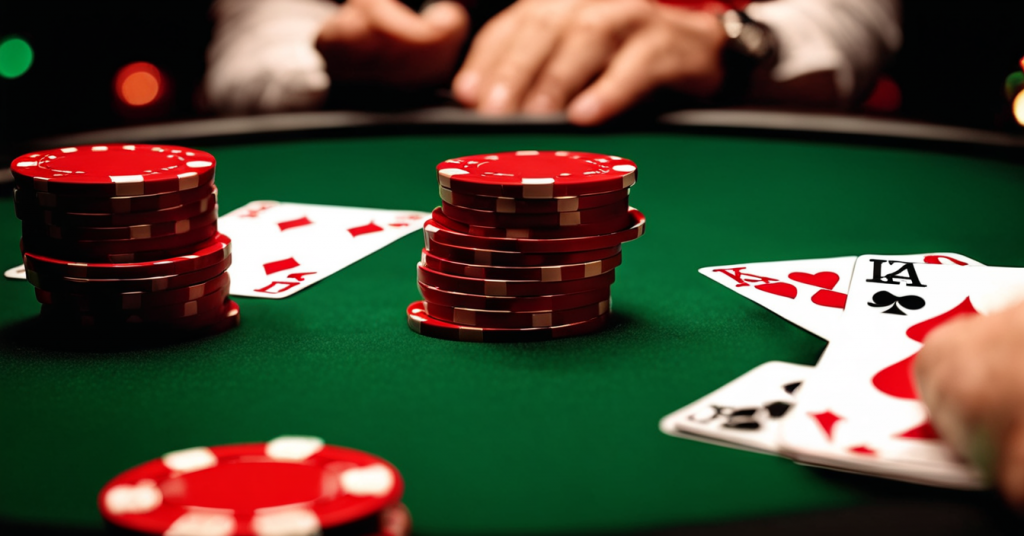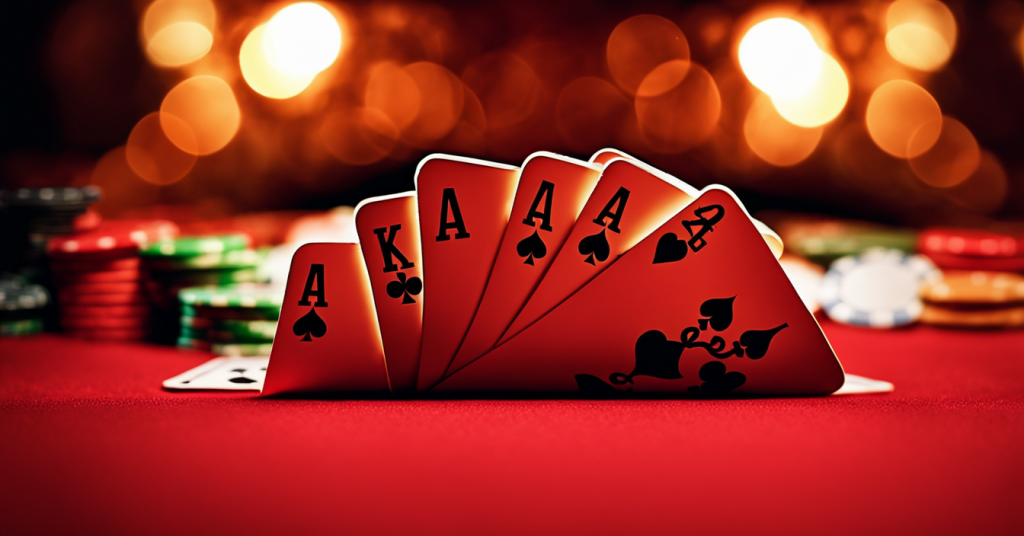
How to Play Poker for Beginners
Poker, often hailed as the game of skill, strategy, and psychology, can seem daunting to newcomers. Yet, with a little guidance and practice, anyone can master the basics and enjoy this classic card game. In this guide, we’ll walk through the essential steps to get started with poker, demystifying the game for beginners and providing practical tips to help you navigate the world of poker with confidence.
Understanding the Basics of Poker
The Objective of Poker
At its core, poker is about winning chips or money by having the best hand or convincing your opponents to fold. The game combines skill, strategy, and luck, making each session a unique experience. While there are many variations of poker, the fundamental goal remains the same: to outplay your opponents and secure victory.
Poker Hands and Rankings
Before diving into gameplay, it’s crucial to understand the ranking of poker hands. Here’s a quick rundown of the standard hand rankings from highest to lowest:
- Royal Flush: A, K, Q, J, 10 all of the same suit.
- Straight Flush: Five consecutive cards of the same suit.
- Four of a Kind: Four cards of the same rank.
- Full House: Three of a Kind plus a Pair.
- Flush: Five cards of the same suit, not in sequence.
- Straight: Five consecutive cards of different suits.
- Three of a Kind: Three cards of the same rank.
- Two Pair: Two sets of pairs.
- One Pair: Two cards of the same rank.
- High Card: The highest card wins if no other hand is made.
These rankings will be your guide in determining the strength of your hand and making strategic decisions throughout the game.
Getting Started: The Basics of Gameplay

The Poker Table and Chips
Poker is typically played with a standard 52-card deck and a set of chips. Chips are used to place bets and represent different monetary values. The table will usually have a dealer button that rotates clockwise after each hand, indicating who is responsible for dealing the cards.
The Blinds
In many poker games, such as Texas Hold’em, the game starts with forced bets called the “small blind” and “big blind.” These are placed by the two players to the left of the dealer button to initiate action. The small blind is usually half the size of the big blind, and these forced bets help create action and ensure that there is always something to play for.
Dealing the Cards
Each player is dealt two private cards (known as “hole cards” in Texas Hold’em) that belong to them alone. Five community cards are then dealt face-up on the table. Players combine these community cards with their own hole cards to form the best possible five-card hand.
Key Poker Strategies for Beginners
Understanding Position
One of the most important concepts in poker is “position.” Your position at the table determines the order in which you act during each betting round. Being “in position” means you get to act after most of your opponents, which provides a strategic advantage as you can see how they act before making your own decision.
For example, if you are in the “late position,” you get to see how many players before you act, giving you more information to make an informed decision. Conversely, being in an “early position” means you must act with less information, so it’s generally wise to play tighter and only enter pots with stronger hands.
Starting Hand Selection
Another critical aspect of poker is selecting the right hands to play. Not every hand is worth playing, and knowing which hands to fold is just as important as knowing which hands to play. For beginners, focusing on strong starting hands—such as high pairs (like A-A or K-K) or high cards of the same suit (like A-K suited)—is a good strategy.
For instance, let’s say you’re holding A-K of hearts. This hand is strong pre-flop because it has the potential to make the highest possible straight or flush. On the other hand, if you’re dealt a 7-2 offsuit, it’s generally best to fold, as it is the weakest starting hand in poker.
Betting Strategies
Betting is a crucial part of poker and understanding how much to bet, when to bet, and when to fold is vital for success. Here are some basic betting strategies:
- Aggressive Betting: Betting or raising rather than calling can force opponents to make difficult decisions and potentially fold better hands. Aggressive betting can also build the pot when you have a strong hand.
- Bluffing: Bluffing involves making a bet or raise with a weak hand to convince your opponents you have a stronger hand. Successful bluffing requires a good read on your opponents and the right circumstances.
For example, if you notice an opponent tends to fold to large bets when they don’t have strong hands, you might use this knowledge to bluff effectively.

Common Mistakes to Avoid
Overplaying Hands
A common mistake among beginners is overplaying hands. Just because you have a decent hand doesn’t mean you should always bet heavily or stay in the game. Sometimes, it’s better to fold and wait for a stronger opportunity.
Ignoring Position
Failing to consider your position at the table can lead to poor decision-making. Playing too aggressively from an early position or too passively from a late position can be detrimental. Always factor in your position when making strategic decisions.
Emotional Play
Poker is as much a mental game as it is a physical one. Allowing emotions to dictate your play can result in poor decisions. This “tilt” can lead to chasing losses or making irrational bets. It’s crucial to maintain a level head and not let emotions interfere with your strategy.
Practice Makes Perfect
The best way to get better at poker is through practice. Start with low-stakes games or free online poker sites to build your confidence and refine your skills. As you become more comfortable with the basics, you can gradually increase the stakes and challenge yourself with more experienced players.
Many successful poker players have started as beginners, honing their skills over time. For instance, poker legends like Daniel Negreanu and Phil Ivey didn’t become experts overnight. They invested countless hours into learning the game, practicing strategies, and analyzing their play.

Learning how to play poker for beginners involves understanding the fundamental rules, mastering basic strategies, and continuously practicing to refine your skills. By grasping the essentials of poker hands, positions, and betting strategies, you set yourself up for success in the game. Remember, poker is not just about luck but also about skill and strategy. Stay patient, be strategic, and enjoy the process of learning and playing this timeless game. With dedication and practice, you’ll find yourself becoming more adept and enjoying the thrill of poker with every hand you play.
